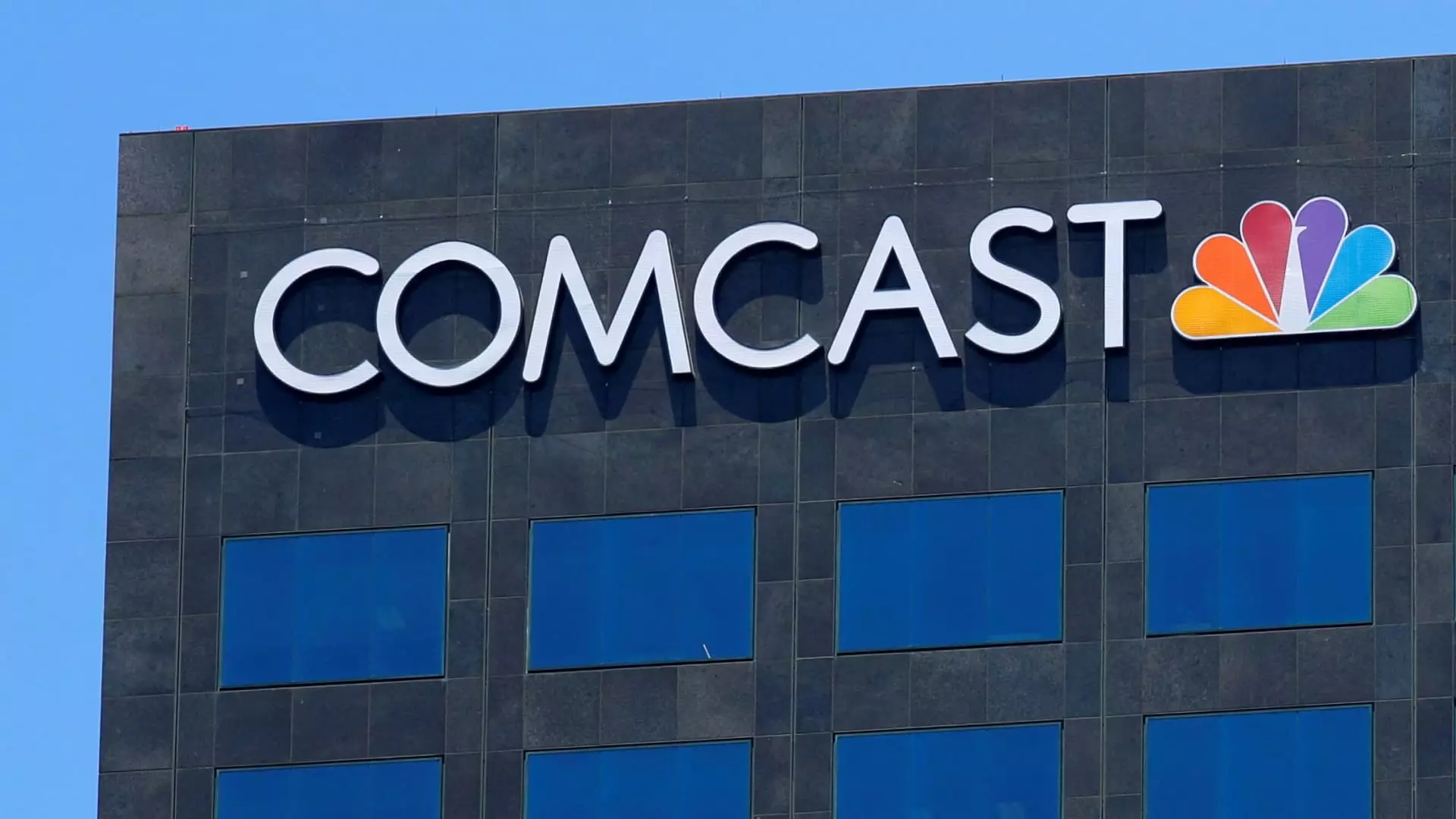In a move that reflects the ever-evolving landscape of media consumption, Comcast is poised to separate itself from its cable network channels, a decision that signifies the company’s adaptation to a market increasingly dominated by streaming services. This critical restructuring is not merely a business maneuver; it embodies a broader trend impacting traditional pay-TV services as consumers continue to shift their preferences toward digital platforms.
According to sources familiar with the matter, Comcast’s separation process is expected to unfold over the course of approximately one year. The company anticipates making an official announcement regarding this significant transition imminently. This spinoff aims to create a new entity that will operate independently of Comcast, providing greater flexibility to explore potential mergers with other networks or to position itself favorably for acquisition by private equity firms. Such strategic moves underscore a fundamental shift in the media landscape, as legacy firms reevaluate their roles in an industry increasingly characterized by rapid change.
Mark Lazarus, currently the chairman of NBCUniversal’s media group, is set to lead this new entity. His leadership will be pivotal in navigating the challenges and opportunities that come with this transition. Meanwhile, Anand Kini, NBCUniversal’s Chief Financial Officer, will assume the role of the new entity’s CFO and operational head. These leadership decisions suggest a strategy geared toward continuity amidst significant structural change, harnessing established expertise to guide the new organization.
One of the more intriguing aspects of this spinoff is its tax-free nature, which effectively mitigates some of the financial burdens typically associated with such significant corporate reorganizations. The new entity’s share structure will mirror that of Comcast, providing a level of familiarity that could ease investor concerns.
As Comcast rightsizes its focus, certain networks including E!, Syfy, Golf Channel, USA, and Oxygen will form part of the spinoff. Notably, Bravo will remain under the Comcast umbrella due to its strong integration with the streaming service Peacock, which has been a core component of Comcast’s strategy to capitalize on the growing demand for on-demand content. This decision illustrates the complexities of modern content distribution and the competing priorities of traditional cable networks and streaming services.
In the broader NBCUniversal ecosystem, significant changes are in motion as well. Donna Langley will take on the role of Chairman of NBCUniversal Entertainment and Studios, while Matt Strauss will lead NBCUniversal Media Group. These appointments signify a consolidation of power within a new operational structure designed to streamline decision-making and enhance content strategy across various platforms, both traditional and digital.
Despite the pressures of cord cutting—where millions of subscribers have opted out of legacy packages—the traditional cable networks still generate substantial revenue for Comcast. Recent reports indicated a remarkable 37% revenue increase in the company’s media segment for the third quarter, driven in part by the popularity of the Summer Olympics. Such stats reinforce the notion that while change is inevitable, traditional broadcasting remains a profitable venture, albeit a fluctuating one in the face of industry upheavals.
As Comcast navigates this transition, the necessity of solidifying licensing agreements and determining operational collaborations between networks like MSNBC and CNBC will emerge as critical tasks. The coming months will be pivotal as formal discussions commence, enabling the company to establish a stable foundation for its new operational framework.
Comcast’s decision to spin off its cable networks marks a significant juncture in its corporate strategy, reflecting both the pressures of an evolving marketplace and a forward-thinking approach to media operations. This initiative not only symbolizes a response to consumer behavior but also hints at potential for future growth and innovation in an increasingly digital world. As Comcast evolves, it will be essential for stakeholders to monitor the outcomes of this strategic pivot and the implications it holds for the future of entertainment consumption.


Leave a Reply